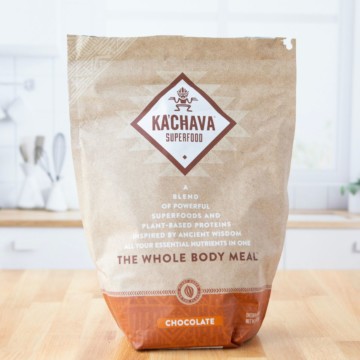
Before trying a new diet, think about what you are truly communicating to your kids. Here are five simple strategies for building healthy families to guide you while working on your own health and lifestyle changes.
This post is sponsored by CLIF Kid.
If you’ve come to a place where you want to make changes to your eating or lifestyle to become more healthy, great! Congratulations. Seriously.
But before you go gung-ho on a new diet strategy or fitness craze, I have a few things I want you to think about if you are a parent with littles in your home. Pump those brakes for just a minute and walk through this with me.
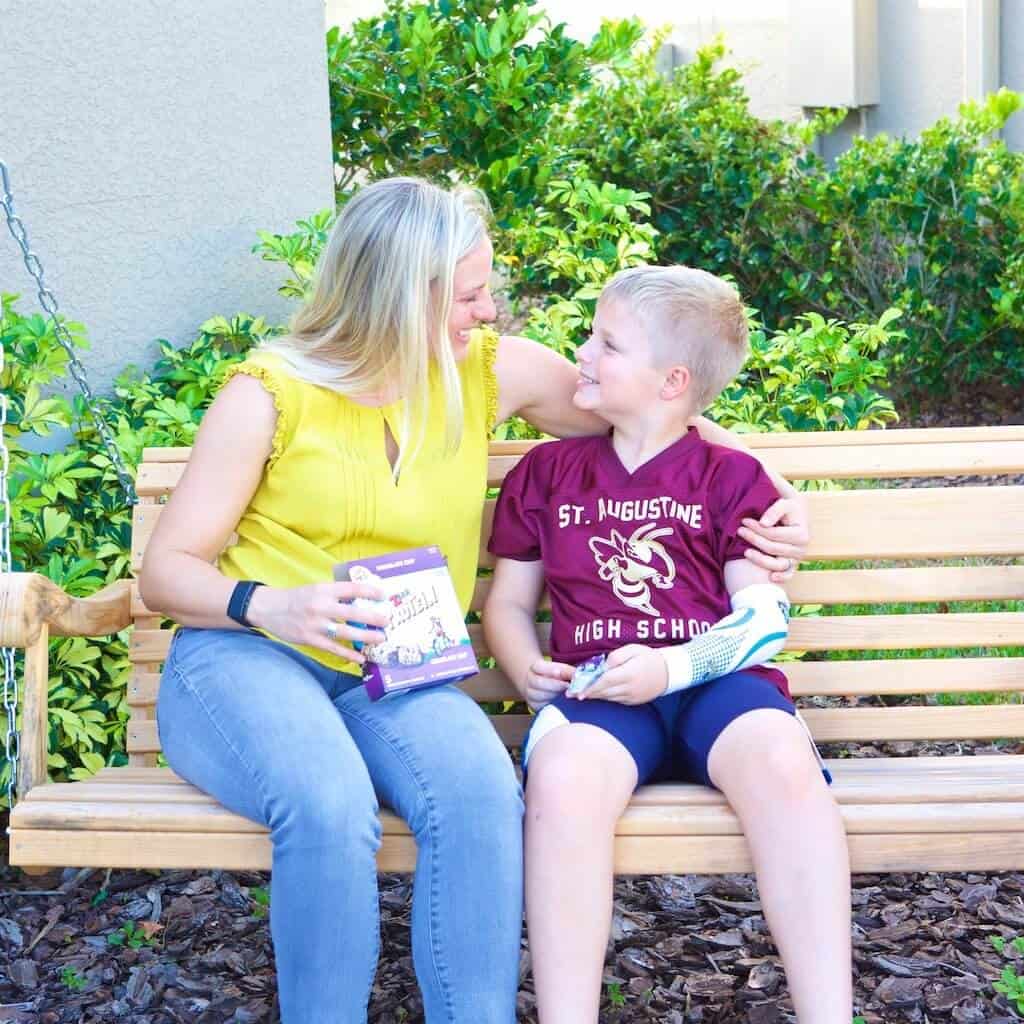
It’s totally normal and understandable to want to make changes to your diet or lifestyle at the start of a new year or season. If this time of year motivates you more than others, great! Go with it. As a parent though, it’s important to think through how your choices, behaviors, and words are landing on your children. Improving your health offers a tremendous opportunity to teach and model a healthy lifestyle to your children that can serve them the rest of their life. I can understand if that sounds a little daunting, so I wanted to give you encouragement and ideas to help you out.
Since we are talking about dynamics for healthy families here too, I enlisted the help of my friend, Robyn Huntley, a St. Augustine, FL-based Licensed Marriage and Family Therapist, to offer insights from her family counseling experience.
Robyn says, “Children are sponges and observe everything. What they see their parents do and what they hear their parents say is extremely impactful, whether it’s taught explicitly or inadvertently through modeling or through our children overhearing our conversations.”
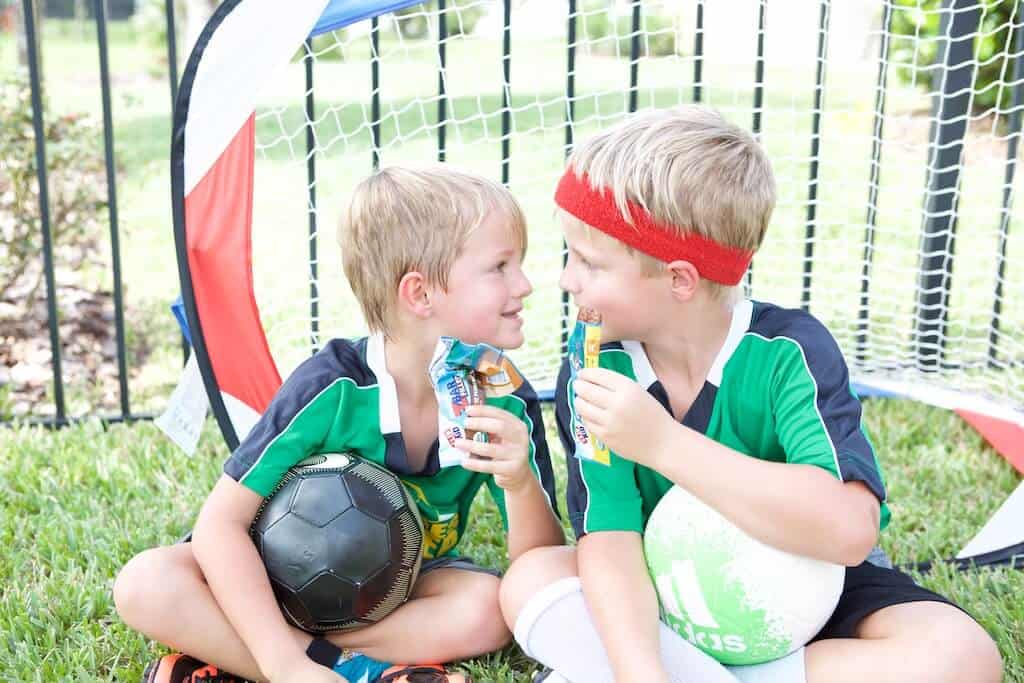
5 Strategies for Healthy Families:
With that in mind, here are five simple strategies for building healthy families to guide you while working on your own health and lifestyle changes:
#1 - Recognize your feelings and words are being noticed
While you think you may be saying or thinking things in secret about your body and food choices (or someone else’s), more than likely your kids are picking it up. Think about if you want your kids to repeat what you think or say. It may take some hard work to change your thoughts, but it’s worth it.
“I cannot emphasize enough,” Robyn urges, “the incredible impact that a parent’s words/attitudes/behaviors have on a child. Even into a child’s adult years and on into future generations, for better or for worse, we do become the voices in our children’s heads. That is why it is so important to be mindful of how we talk about health, food, and body image.”
Here's some other posts on Make Healthy Easy that dive into socially acceptable, but perhaps not beneficial, thought processes around eating and health:
- How to Not Eat that Brownie in the Breakroom
- How to Make New Year's Resolutions that Work
- What Does it Mean to Eat in Moderation?
#2 - Honor your hunger/satiety cues
A precious gift you can pass down to your kiddos is the freedom to honor the cues their body gives them around hunger and fullness. If this is foreign territory for you, it’s ok that it might feel awkward talking about it with your kids for a while. Regardless of what changes you might be making to your eating, learning to honor the cues of your body is a skill that will help guide you in becoming a balanced eater.
For instance, “cheat days” are a commonly used term that suggest you are cheating if you choose to eat certain foods at certain times. This mentality suggests that certain foods are not available or acceptable on any given day and disregards personal desire or enjoyment of a food.
Instead of regularly talking about how much to eat or not eat, ask your kids what their body is telling them it needs to stay energized. It might be as simple as teaching them the importance of stopping for a hunger-busting snack so they can continue to be their best. In this situation, I love CLIF Kid Zbar® Filled or Zbar® Protein bars. Both provide hunger-helping ingredients and have a low glycemic index to help avoid sugar spikes and crashes. I find that the ingredients in Zbar Filled and Zbar Protein bars help power my boys through a busy afternoon with much better attitudes and more fun for us all.
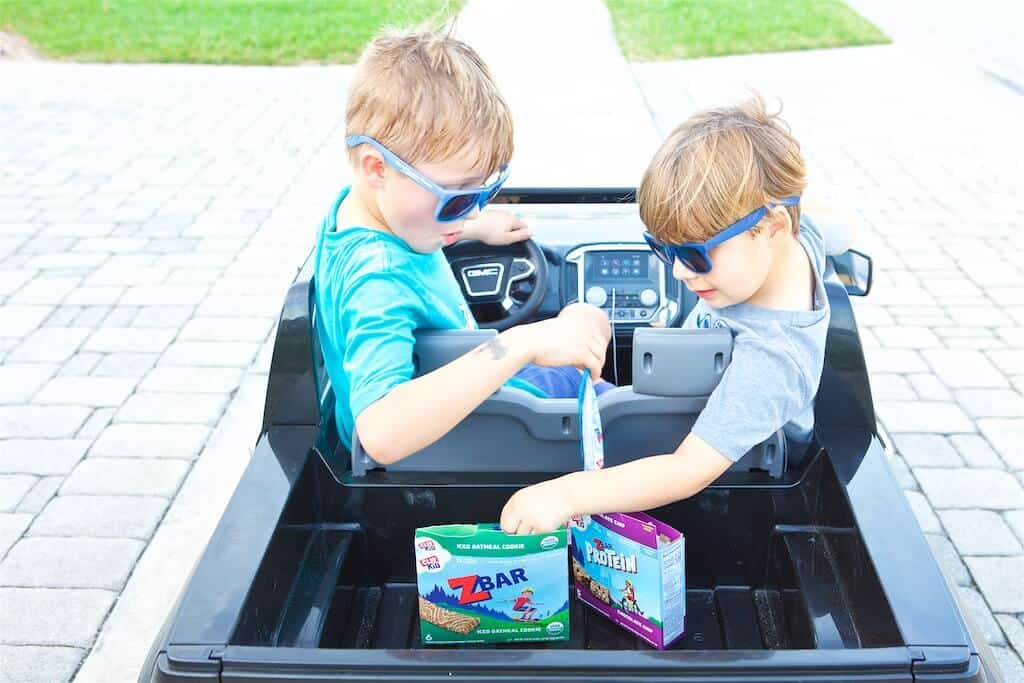
This is an area where it takes practice, trial and error, to develop trust in your body’s signals. It’s OK to eat past fullness sometimes or not eat quite enough. You or your child can learn something important from these experiences. I have had some sweet, powerful conversations with my sons about body signals and what they could do differently next time.
#3 - Use language that builds up food, not moralizes it
We live in a society that often categorizes food as “good” or “bad”, “healthy” or “unhealthy.” I am not a fan and don’t think this is productive, especially in raising healthy kids.
Just recently my boys have started asking questions like “Are calories bad?” and “Is soda healthy?” I’ve fumbled a bit through these answers, to be honest, because I’m trying to navigate around my own biases. I try hard to give honest answers that give them actionable information. So instead of answering “Soda is terrible and we do not drink soda,” I went with something more along the lines of “Soda is a special treat that you can enjoy occasionally, but it’s probably not the best every day choice.”
Robyn suggests avoiding the following language and I totally agree:
- Talk of food making someone fat
- Food or ingredients being bad (i.e. carbohydrates, sugar, desserts, types of protein, etc.)
- Eating a particular food or meal is "cheating"
- Associating guilt with food (I was so bad today because I had 3 cookies.)
Some examples of alternative ways you can frame your language in your own mind, and with your children, include:
- I want to give my body the energy it needs.
- All foods serve a purpose in our life. Foods can give us energy, help us feel great or also just be really yummy.
- My body deserves to be well-fueled.
- Our bodies need fuel and carbohydrates when we’re active/playing. Pay attention to what makes you feel fast and strong.
- This food makes my body really happy/strong/joyful/energized.
- I’m going to pass on that food for now, because I already had plenty, and too much wouldn’t be the best choice for me.
- I really enjoyed sharing this special treat with you. Your company was the best part.
#4 - Start enjoyable habits together that lay the foundation of health
When you want to make improvements to your body and lifestyle it’s easy to first start with what you want to cut out. But what if you started with what you need to add to create better health? The great news about this approach is that it can include your kids! Look to create new, fun experiences around food and fitness together, that also promote well-being.
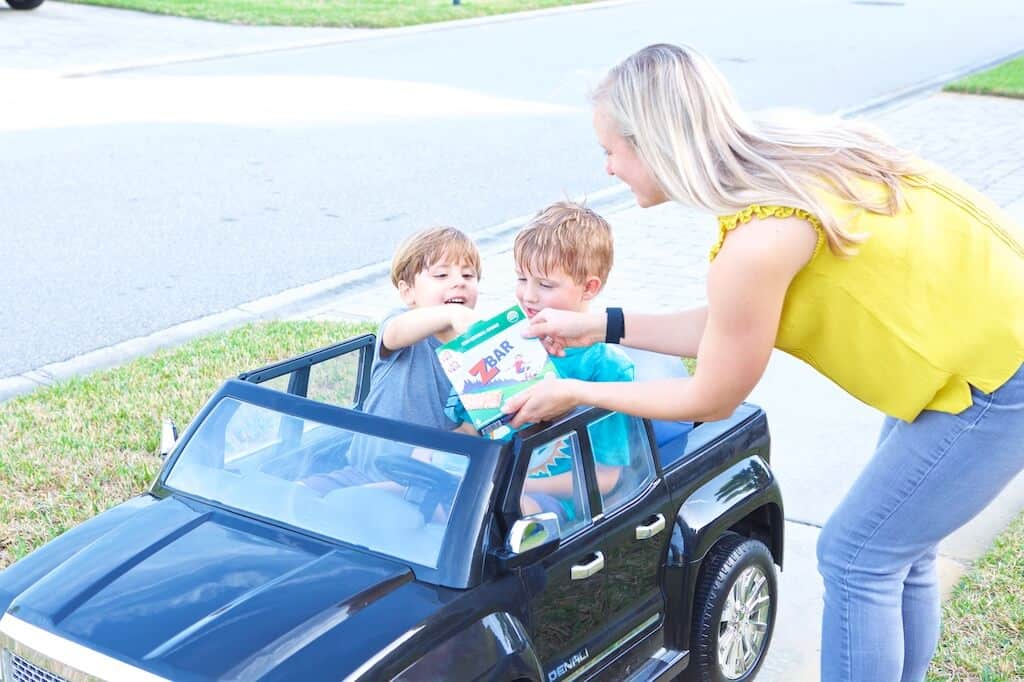
Snack time is an AMAZING time to do this. Snacking is important for keeping energy levels up so you can continue enjoying an experience or working at a high level. It prevents being hangry for adults and kids and supports you being your best self more often. It also provides an opportunity to consume nutrient dense food. Lastly, it can just be an enjoyable time together.
If you’re not sure how to start, try this: on a day off or the weekend, play with your kids. Enjoy moving together. When some time has passed, pause and ask your child how their energy is doing. Are they feeling great or running low? Talk about your energy levels too. If it’s been a couple of hours since they ate, suggest pausing to enjoy a snack together. Share a piece of fruit and offer one of my favorite snacks, CLIF Kid Zbar®, which is crafted to keep active kids going.
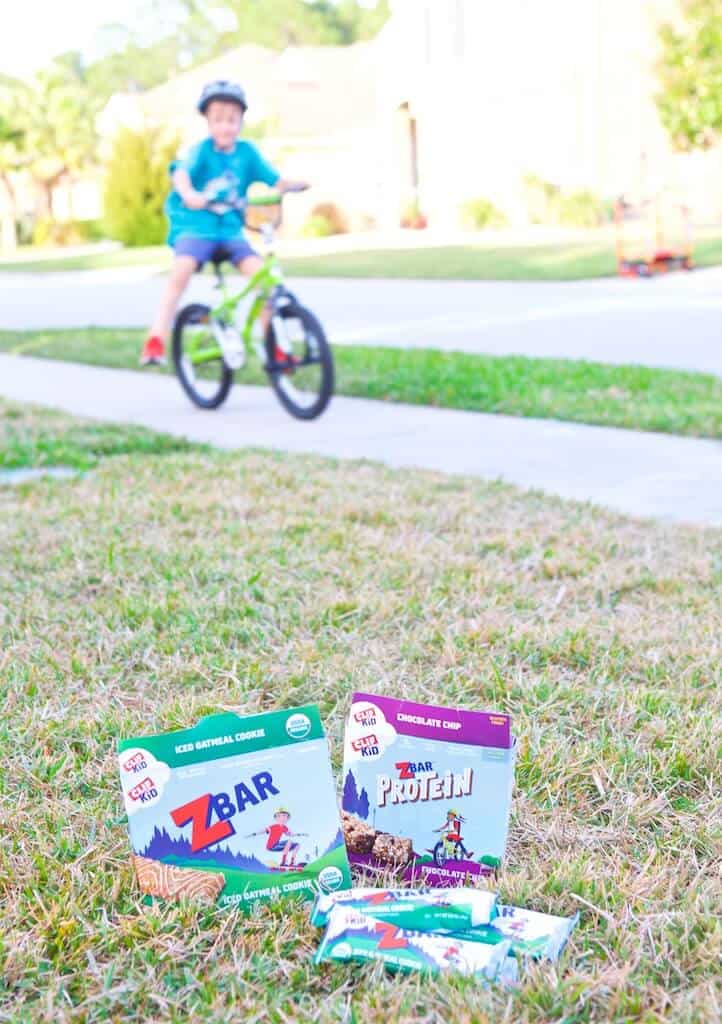
CLIF Zbars are a favorite with Team Braddock. I appreciate that they are the perfect size for kids, made with wholesome ingredients like organic oats, and taste delicious. They contain whole grains (10-12g) fiber, and have no high fructose corn syrup or artificial flavors. Everyone will have energy and can continue enjoying playing.
#5 - Talk about changes as a family
The interesting thing about healthy living is that personal choices can have an impact on the entire family.
If you are going to do something that’s a big change, Robyn suggests talking about it. “When a parent makes obvious diet or lifestyle changes, a child is probably going to notice it, depending on their age. Generally speaking, I tend to encourage openness/transparency and honest discussion about things, rather than keeping anything shrouded in secrecy or mystery. So, though there may be a situation that calls for an exception to this rule, I would lean toward open/honest discussion and explanation. Children are very perceptive and may feel confused about why we’re making certain choices, even if they don’t come right out and ask. To make a significant change in the household, and then just pretend it doesn’t exist isn’t healthy for children. It’s confusing.”
Consider making changes gradually instead of a host of things at once. This is important whether you have kids or not because it’s a key to sustainable change. I know you probably hear that a lot, but it’s 100% true, so please trust me. Remove a mental end date or weight loss number (i.e., I am going to lose x # of pounds by my birthday) that makes changes seem unnecessarily urgent and time-restrictive.
Having that date or number in your mind is a subconscious finish line that, whether you realize it or not, allows you to slack off from these drastic changes you made. It’s just not healthy or realistic. Again, imagine your child talking this way about a goal in their life or health. How would that sit with you? Plus, if you made big changes that impacted your family, but then those changes sooner or later stopped, that can be very confusing to kids. Remember, little minds are concrete thinkers.
“Don’t try to force too many or too drastic of changes onto anyone in the family all at once,” Robyn suggests. “Set small, attainable goals, such as ‘this week, we’re going to try to drink more water (or try more fresh produce, or play outside together after dinner, etc.).’
See if you can make it into a friendly game and cheer each other on. Remember to keep the focus on making choices out of a place of love/respect/honor for our amazing bodies that work so hard for us each day.”
Build Healthy Families Together
Building your own personal healthy lifestyle is so important for being the best parent you can be. Sometimes you might need to engage in new behaviors on your own to lay a better health foundation. But, I hope this article has also opened your eyes to the awesome potential of impact you have on your littles through this process. Remember these strategies for healthy families along the way:
- Think through the messages you are communicating through your new actions and whether you are really OK with your kids receiving them.
- Look for opportunities to build healthy habits together.
- Speak and demonstrate positive ideas about bodies, food and health.
- Be ready to have conversations with your kids.
Now, go forth and be healthy, be happy, and do it together as a family!













